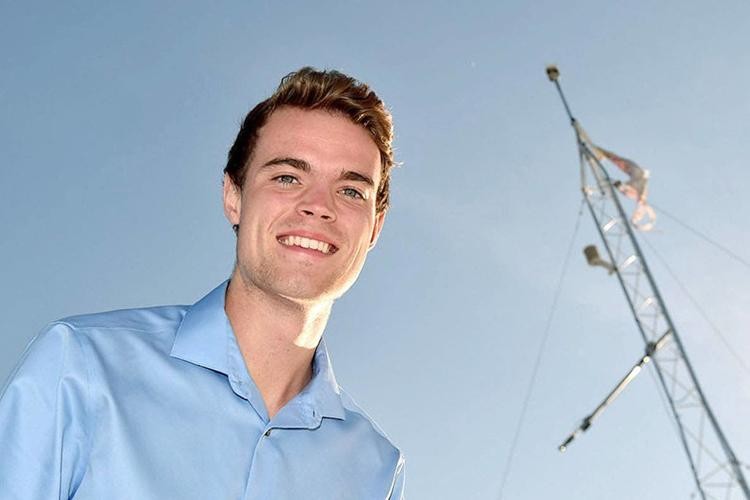WSU student among those looking for climate solutions in technology
Saturday, November 9, 2019

(As reported in the Moscow-Pullman Daily News by Scott Jackson)
At 21 years old, Washington State University chemical engineering student Kristian Gubsch has already made finding economically viable solutions to climate change his life’s work.
In December, Gubsch will be one of just eight student delegates representing the American Chemical Society at the United Nations Framework Convention on Climate Change’s 25th Conference of Parties, or COP 25. The group is tasked with advising nations on how to honor international climate accords and meet carbon emissions targets that will limit the warming of the globe to 1.5 degrees Celsius.
Gubsch said he was first inspired to lead the charge against the climate crisis by his high school physics teacher in his senior year. He said the teacher would show students informational videos on what were dubbed “motivational Mondays” — many of which focused on climate change. Some of these videos outlined social issues related to the phenomena, others centered on possible solutions and many painted a bleak picture of the future if dramatic action isn’t taken soon.
“It kind of opened up my mind to what was actually happening in the world and what people were being affected and what the world could look like in 50 years,” Gubsch said. “It was kind of shocking and I was like, ‘Maybe there’s something I can do to prevent this.’ ”
Following high school, Gubsch launched an undergraduate career steeped in a diverse array of climate-related research opportunities. For a time, he worked to help implement a network of atmospheric sensors monitoring air quality in Spokane’s University District. In another program, Gubsch investigated methods of removing carbon dioxide from the atmosphere and converting it into substances that can be utilized around the world. Most recently, he interned with the National Oceanic and Atmospheric Administration studying the effects of ocean acidification on coral reefs. He said all of this work motivated him to pursue practical solutions to climate change.
“I would love to see a technology be developed that’s so disruptive that people can’t help but implement it because it would be a no-brainer,” Gubsch said. “That’s kind of what I want to develop is just something that makes so much sense and fits so easily within the framework of our society.”
In his role as a delegate to COP 25, Gubsch said he would like to focus discussion on negative emissions technologies and how they can be deployed to help governments reduce their carbon footprints. He said it is important to develop strategies that have a meaningful effect on climate change, but also generate economic growth.
Now considering his options for graduate school work, Gubsch said he would like to be at the forefront of developing these strategies. While he is particularly interested in carbon capture and utilization, which focuses on trapping atmospheric carbon in useful materials like fuels and building materials, he said, no single solution will bring the climate crisis to a close.
“I don’t want to come off as ‘This technology will save climate change.’ I think that’s a little dramatic,” Gubsch said. “But it’s another tool that can be used to help mitigate the problem without shrinking the economy — I think it could be a potential bipartisan solution.”
The U.N. Climate Change Conference, including COP 25, will be held in Madrid, Spain, on Dec. 2-13.